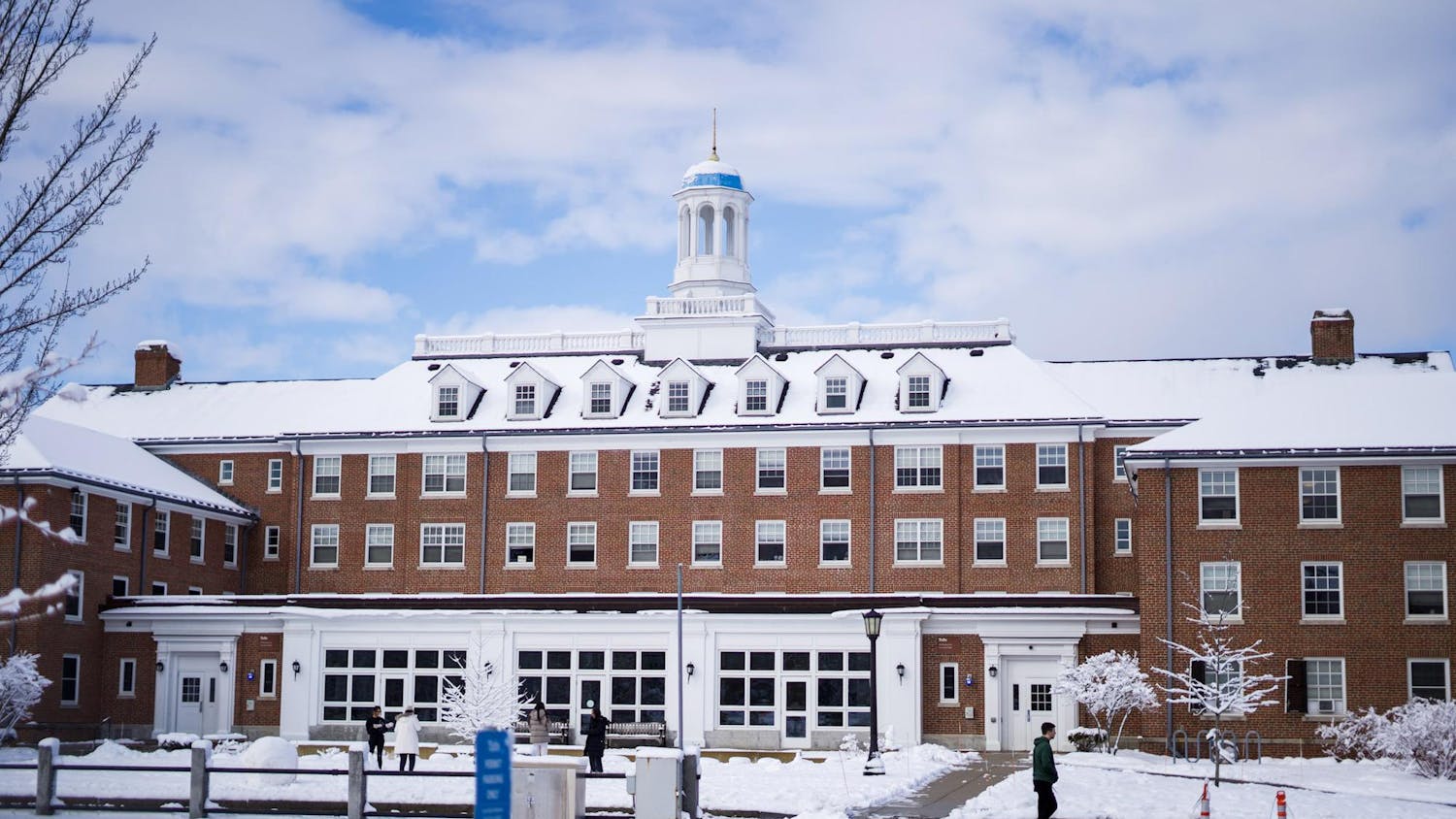Amid a national wave of encampments for Palestine on college campuses, Tufts students have set up tents on the Academic Quad to demand that Tufts divest from Israel and that charges against student protesters across the country be dropped.
Protesters first put up the tents on April 7 but temporarily took them down on April 17, in order to focus on a separate demonstration where they installed an “Apartheid Wall” on President’s Lawn. Students rebuilt the tents on Sunday evening, after the arrest and suspension of more than 100 Columbia University students at their encampment over the weekend.
“In this moment of massive mobilization, we think it’s especially important to take up space on campus,” one student at the encampment said. “[We think it’s important to] provide a hub for organizing and engagement where people can plug into the ongoing efforts and find out what they can do that will be meaningful in solidarity.”
“One of our main demands is dropping the charges on students across the country who have received disciplinary violations and arrests in response to encampments,” one student explained. “As long as these demands are not met, we will continue to hold this encampment.”
“Gaza Solidarity Encampments” have been set up on college campuses across the U.S., including New York University, MIT and Emerson College.

Students created an “Apartheid Wall” installation on April 19.
But the focus should stay on Gaza, one student at the Tufts encampment emphasized.
“It’s really important to note that the encampment we set up is in solidarity with Palestine and Gaza,” the student said. “It’s because of a national call for encampments that started due to the situation in Columbia, but it is in solidarity with Palestine ultimately and primarily.”
Students explained that the encampment is not only a means of protest but also an educational space where community members can deepen their understanding of the situation in Gaza. There is a community library at the center of the tents, containing books that have mostly been donated by Tufts professors.

Community members donated books to the encampment library.
“We feel urgently that educating ourselves is an imperative that we have to center in this space,” one student said. “It has been really wonderful to see people spending time in the space and reading the books and discussing them with each other. I’ve heard multiple times people explain something that they just learned from one of our books to somebody around them who isn’t reading the book.”
A student staying at the encampment pointed to the increased collaboration with local organizations for Palestine, as well as an outpouring of food, book and supply donations from community members.
“There [have] been two separate avenues of activism,” the student said. “There [have] been Medford and Somerville for Palestine and separately Tufts SJP. There’s been a really beautiful interlinking while the encampment has been up. Having a very physical presence on campus has provided a site for solidarity to be formed.”
The encampment’s visual presence on the Academic Quad, a frequent vantage point for campus tours, has drawn the attention of visiting prospective students.
“We’ve been handing informational flyers to tour groups and engaging in conversation with anybody who comes up to the tenting site,” a student said. “We’ve had a lot of meaningful and productive conversations with a lot of people who have a lot of different viewpoints.”
One student at the encampment shared that since tents were erected, interactions with the Tufts administration have been relatively minimal. However, protesters said they received complaints from administrators about putting signs on trees. Tufts University Police Department was previously dispatched during a vigil on April 8 for Palestinian lives lost.
“We had a vigil during our first set of encampments,” the student said. “And [a TUPD officer] came by and harassed people while they were sitting in vigil, and demanded that we take down the candles as they were a fire hazard.”
Patrick Collins, Tufts’ executive director of media relations, addressed the police presence in a statement issued after the vigil.
“In addition, standard university practice is to monitor public gatherings on campus to ensure the safety of all community members – both those who are demonstrating and those who are not,” Collins wrote in an email to the Daily. “The officer in the video was dispatched due to concerns about candles burning near nylon tents set up on the academic quad. Once the officer was able to observe that the candles did not appear to pose an immediate fire safety issue, he left the area.”
Students for Justice in Palestine are planning their next protest, “All Out for Palestine,” on Friday at 12 p.m. on the Academic Quad.
“Our cultural, academic and financial investments around the world are not separate from the concepts that we teach, and the liberatory ideologies that we claim to support and uphold,” a protester shared. “In having an educational space and also an organizing space … I think that it’s strengthened a lot of our relationships and strengthened [our] clarity of purpose and commitment.”






